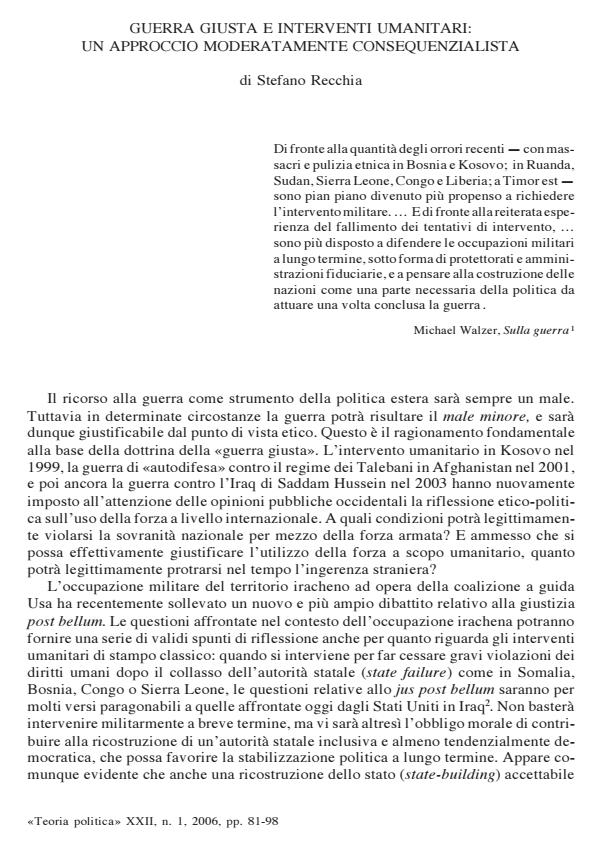Guerra giusta e interventi umanitari: un approccio moderatamente consequenzialista
Journal title TEORIA POLITICA
Author/s Stefano Recchia
Publishing Year 2006 Issue 2006/1
Language Italian Pages 18 P. File size 124 KB
DOI
DOI is like a bar code for intellectual property: to have more infomation
click here
Below, you can see the article first page
If you want to buy this article in PDF format, you can do it, following the instructions to buy download credits

FrancoAngeli is member of Publishers International Linking Association, Inc (PILA), a not-for-profit association which run the CrossRef service enabling links to and from online scholarly content.
The article starts with the following assumption: in situations of state failure characterized by large-scale loss of life, military intervention can sometimes be justified as a lesser evil, when compared to the prospect of ongoing suffering and destruction. Advocates of humanitarian intervention however often appear to be reasoning in excessively deontological terms. Their insistence on the need to «do something» in the face of human suffering has forestalled an adequate reflection on (a) the dilemmas of actually taking sides to coerce local parties into peace; (b) the likely consequences of military intervention on the local balance of power; and (c) the need to subsequently commit adequate time and resources to rebuild a viable state. Drawing on the principles of classical just war thinking, the article lays out the framework for a moderately consequentialist theory of humanitarian intervention: without denying that there is a moral duty to react in the face of widespread human suffering, military intervention can ultimately be justified only if its likely consequences are adequately dealt with, and if those who intervene have the political will to rebuild an inclusive, self-sustaining state.
Stefano Recchia, Guerra giusta e interventi umanitari: un approccio moderatamente consequenzialista in "TEORIA POLITICA" 1/2006, pp , DOI: